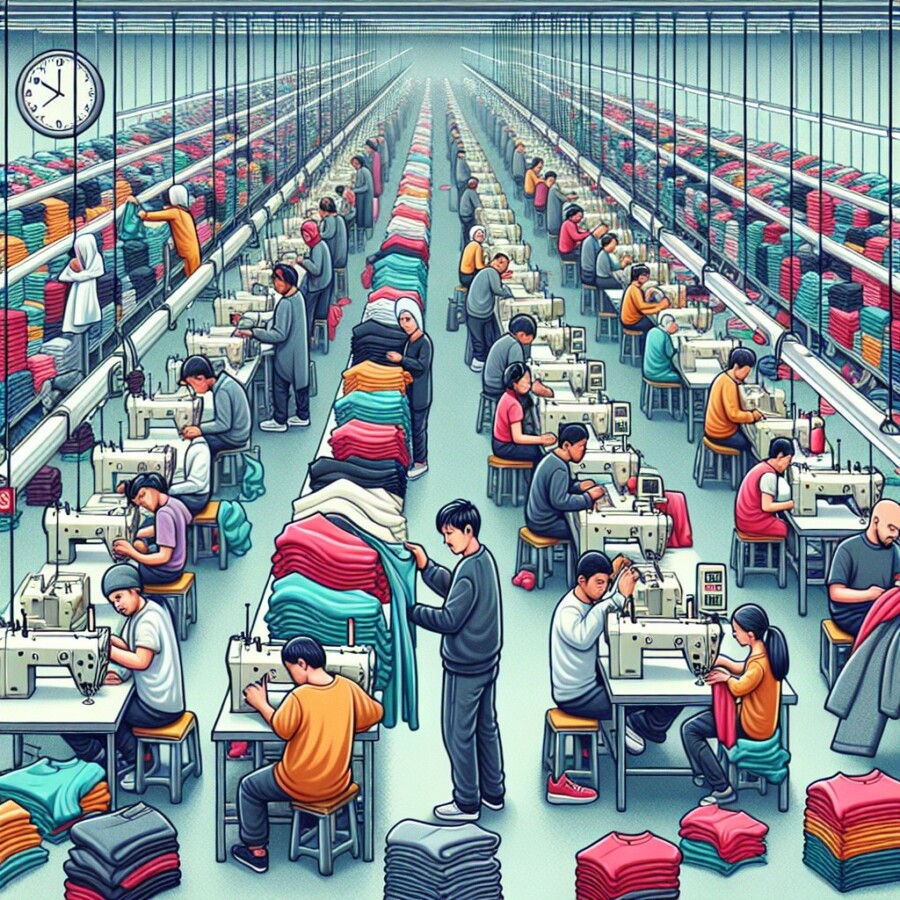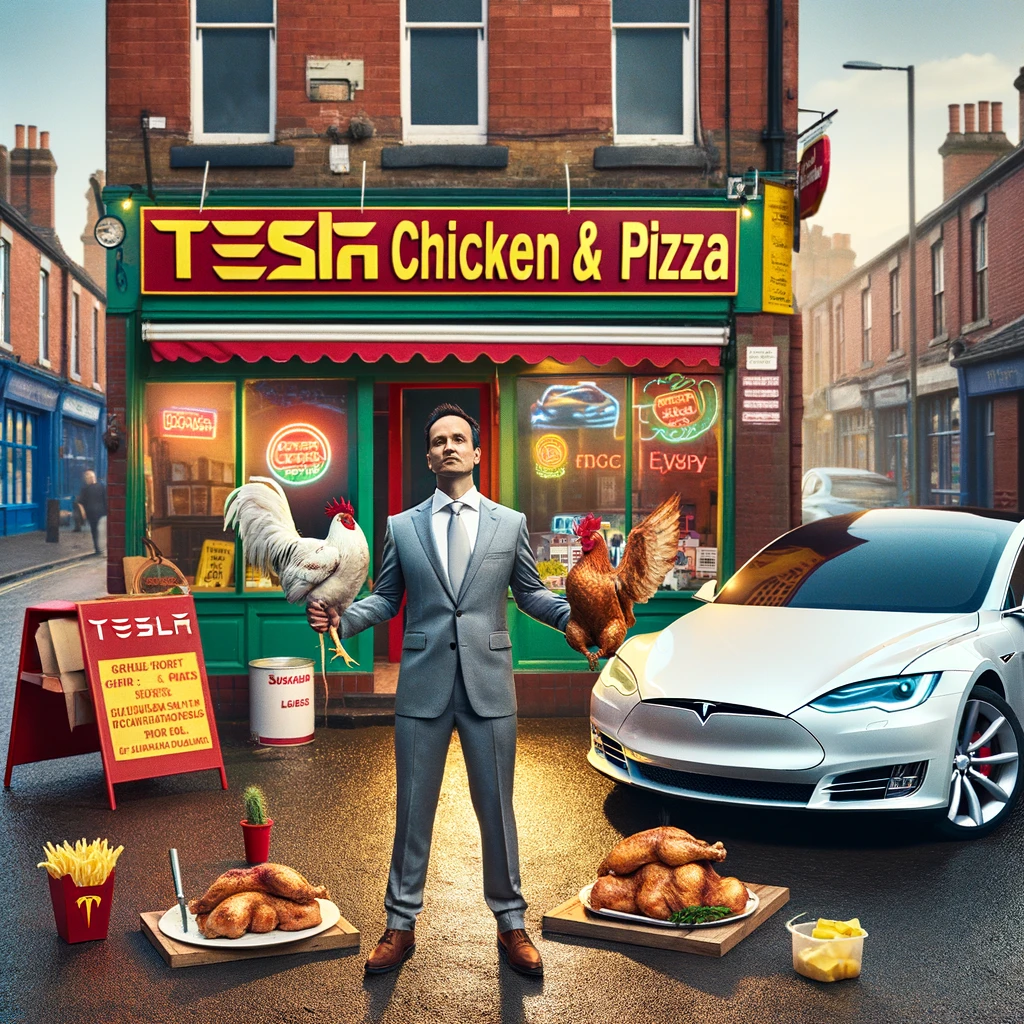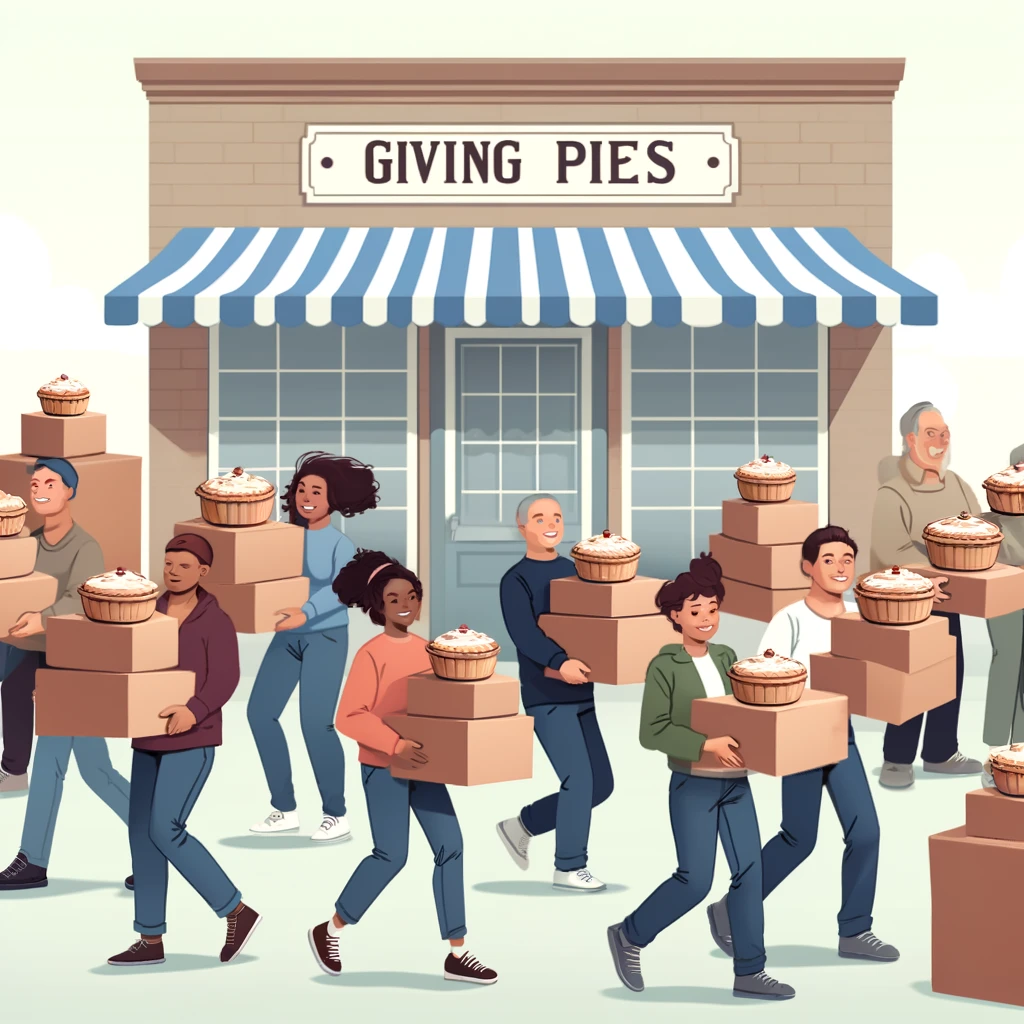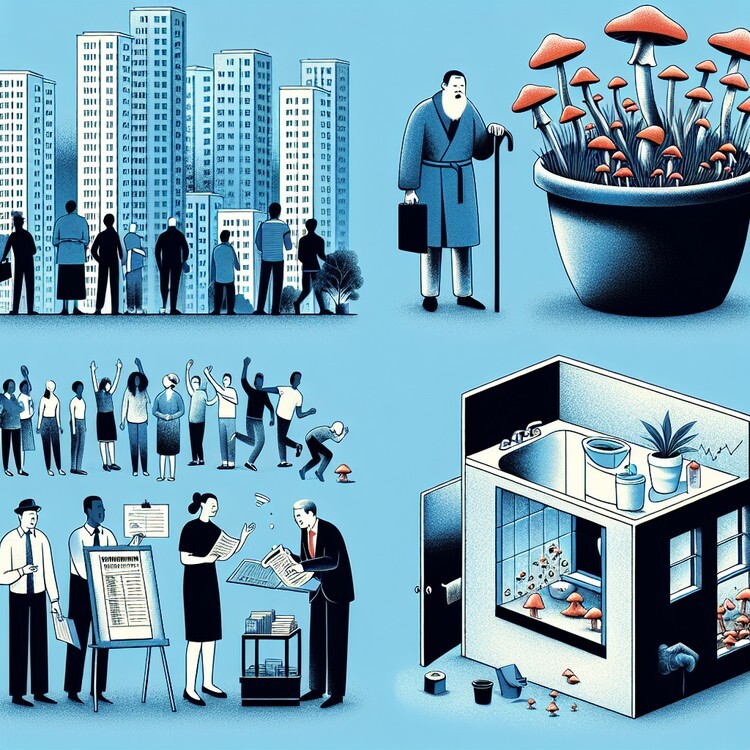Popular clothing retailer Boohoo has been caught putting “Made in the UK” labels on clothes that were actually made in South Asia, according to a recent investigation by BBC Panorama. This means that the labels on the clothes were lying about where they were made. The clothes had their original labels taken off at Boohoo’s main factory in Leicester. This happened between January and October 2023 and could affect a lot of clothes. Boohoo says it was a mistake and they are taking steps to make sure it doesn’t happen again.
This mistake has made people worried about how Boohoo checks its clothes. Chris Grayer, who used to be in charge of making sure suppliers followed the rules at Next, said that if a mistake like this happened at Next, they would recall the clothes and fix the labels. Sylvia Rook from the Chartered Trading Standards Institute also said that changing the labels to say “Made in the UK” when they weren’t could trick people. Philip Dunne MP, who leads a committee on the environment, said that this is a serious accusation and it’s important to be honest with customers about where clothes come from.
On top of the label problem, Boohoo is thinking about closing its factory in Leicester. This factory opened in 2022 and was meant to be a great place for making clothes in the UK. If it closes, people are worried about what will happen to ethical and sustainable fashion in the country. Boohoo has been criticized before for bad working conditions and low pay at its suppliers. In 2020, the company promised to make big changes, but this recent label issue makes people question if they are really committed to making clothes ethically.
In conclusion, the mistake with the labels and the possible closure of Boohoo’s factory in Leicester have made people think about how the company makes its clothes and if it really cares about doing it in a fair way. This investigation shows that the fashion industry needs to have better checks and be more open about how clothes are made. This way, customers can trust that they are getting what they pay for and workers are being treated well.
Original news source: Boohoo put ‘Made in UK’ labels on clothes made overseas (BBC)
🎧 Listen:
Slow
Normal
Fast
📖 Vocabulary:
| 1 | retailer | A store or person that sells goods to the public |
| 2 | investigation | A detailed examination or study of something to discover more about it |
| 3 | labels | Small pieces of fabric or paper attached to products that give information about them |
| 4 | factory | A building where goods are manufactured or assembled |
| 5 | suppliers | Companies or people that provide products to other businesses |
| 6 | recall | To ask customers to return a product because there might be something wrong with it |
| 7 | ethical | Doing things in a way that is morally right |
| 8 | sustainable | Able to be maintained or continued without harming the environment |
| 9 | criticized | To express disapproval or find fault with something or someone |
| 10 | committed | To be dedicated or devoted to a cause or activity |
| 11 | conclusion | The final part of something, usually summarizing the main points |
| 12 | closure | The act of something ending or being shut down |
| 13 | industry | The group of businesses that make or sell goods or services in a particular area |
| 14 | checks | Inspections or examinations to make sure everything is correct or safe |
| 15 | treated | To be dealt with in a certain way, especially in terms of behavior towards someone |
Group or Classroom Activities
Warm-up Activities:
– News Summary
Instructions:
1. Divide the students into pairs or small groups.
2. Provide each group with a copy of the article or read it aloud to the class.
3. Instruct the students to read the article and then work together to write a brief summary of the main points.
4. Encourage the groups to use their own words and focus on the most important information.
5. After a designated time, have each group share their summaries with the class and discuss any differences or similarities.
– Opinion Poll
Instructions:
1. Divide the students into pairs or small groups.
2. Provide each group with a list of discussion questions related to the article, such as “Do you think Boohoo’s label mistake was intentional or a genuine mistake?” or “Should clothing companies be required to disclose where their products are manufactured?”
3. Instruct the students to discuss the questions and share their opinions with their group members.
4. After a designated time, have each group share their opinions with the class and facilitate a class-wide discussion on the topic.
5. Encourage the students to respectfully listen to different viewpoints and provide evidence to support their own opinions.
– Sketch It
Instructions:
1. Divide the students into pairs or small groups.
2. Provide each group with a blank sheet of paper and drawing materials.
3. Instruct the students to work together to create a visual representation of the article, focusing on the main points and key details.
4. Encourage the students to use symbols, images, and captions to convey their understanding.
5. After a designated time, have each group share their sketches with the class and explain their choices.
6. Facilitate a class discussion on the different interpretations and visual representations of the article.
– Vocabulary Pictionary
Instructions:
1. Divide the students into pairs or small groups.
2. Provide each group with a list of vocabulary words from the article, such as “ethics,” “sustainable,” “accusation,” “supplier,” etc.
3. Instruct the students to take turns drawing one of the words while their group members guess what it is.
4. Encourage the students to use their knowledge of the article and context clues to help them guess the words.
5. After a designated time, have each group share their drawings and discuss the meanings of the words.
6. Facilitate a class-wide discussion on the importance of understanding and using vocabulary related to the fashion industry and ethical practices.
– Future Predictions
Instructions:
1. Divide the students into pairs or small groups.
2. Instruct each group to imagine themselves as fashion industry experts and predict what will happen in the future based on the information from the article.
3. Provide guiding questions, such as “Will Boohoo be able to regain customer trust?” or “What changes do you think will be made in the fashion industry to prevent similar label mistakes?”
4. Encourage the students to use their critical thinking skills and reasoning to support their predictions.
5. After a designated time, have each group share their predictions with the class and discuss the likelihood and potential impacts of their predictions.
6. Facilitate a class-wide discussion on the future of the fashion industry and the importance of ethical practices.
🤔 Comprehension Questions:
1. What did the investigation by BBC Panorama reveal about Boohoo’s clothing labels?
2. Why are people worried about how Boohoo checks its clothes?
3. How did Chris Grayer say Next would handle a mistake like this?
4. What concern did Sylvia Rook express about changing the labels on the clothes?
5. What did Philip Dunne MP say about the accusation against Boohoo?
6. What is Boohoo considering doing with its factory in Leicester?
7. Why are people concerned about the possible closure of the factory?
8. What previous criticisms has Boohoo faced regarding its suppliers?
Go to answers ⇩
🎧✍️ Listen and Fill in the Gaps:
Popular clothing retailer Boohoo has been caught putting “Made in the UK” labels on (1)______ that were actually made in South Asia, according to a recent investigation by BBC (2)______. This means that the labels on the clothes were lying about where they were made. The clothes had their (3)______ labels taken off at Boohoo’s main (4)______ in Leicester. This happened between January and October 2023 and could affect a lot of clothes. Boohoo says it was a mistake and they are taking steps to make sure it doesn’t happen again.
This mistake has made people worried about how Boohoo checks its clothes. Chris Grayer, who used to be in charge of making sure suppliers followed the rules at Next, said that if a mistake like this happened at Next, they would (5)______ the clothes and fix the labels. Sylvia Rook from the (6)______ Trading (7)______ Institute also said that changing the labels to say “Made in the UK” when they weren’t could trick people. Philip Dunne MP, who leads a committee on the (8)______, said that this is a serious accusation and it’s important to be honest with customers about where clothes come from.
On top of the label problem, Boohoo is thinking about closing its factory in (9)______. This factory (10)______ in 2022 and was meant to be a great place for (11)______ clothes in the UK. If it closes, people are worried about what will happen to ethical and sustainable fashion in the country. Boohoo has been criticized before for bad working conditions and low pay at its (12)______. In 2020, the company promised to make big changes, but this recent label issue makes people question if they are really (13)______ to making clothes ethically.
In (14)______, the mistake with the labels and the possible closure of Boohoo’s factory in Leicester have made people think about how the (15)______ makes its clothes and if it really cares about doing it in a fair way. This (16)______ shows that the fashion industry needs to have better checks and be more open about how clothes are made. This way, customers can trust that they are getting what they pay for and workers are being treated well.
Go to answers ⇩
💬 Discussion Questions:
Students can ask a partner these questions, or discuss them as a group.
1. What is the problem with the labels on the clothes at Boohoo?
2. How would you feel if you bought clothes that were labeled as “Made in the UK” but were actually made in South Asia?
3. Do you think it’s important for clothing companies to be honest about where their clothes are made? Why or why not?
4. What do you think should happen to the clothes that were mislabeled? Should they be recalled and fixed?
5. Why do you think people are worried about how Boohoo checks its clothes?
6. What is ethical and sustainable fashion? Do you think it’s important?
7. How do you feel about the possible closure of Boohoo’s factory in Leicester?
8. Do you think Boohoo is committed to making clothes ethically? Why or why not?
9. Why do you think the fashion industry needs better checks and transparency?
10. How can customers trust that they are getting what they pay for when buying clothes?
11. Have you ever bought clothes from Boohoo? How was your experience?
12. What do you think should be done to improve working conditions and pay at clothing suppliers?
13. How do you think this investigation will affect people’s opinions of Boohoo as a brand?
14. Do you think other clothing companies may also have issues with mislabeling their clothes? Why or why not?
15. What changes do you think need to be made in the fashion industry to ensure ethical and fair practices?
Individual Activities
📖💭 Vocabulary Meanings:
Match each word to its meaning.
Words:
1. retailer
2. investigation
3. labels
4. factory
5. suppliers
6. recall
7. ethical
8. sustainable
9. criticized
10. committed
11. conclusion
12. closure
13. industry
14. checks
15. treated
Meanings:
(A) The act of something ending or being shut down
(B) To be dealt with in a certain way, especially in terms of behavior towards someone
(C) Doing things in a way that is morally right
(D) Small pieces of fabric or paper attached to products that give information about them
(E) Inspections or examinations to make sure everything is correct or safe
(F) Companies or people that provide products to other businesses
(G) The final part of something, usually summarizing the main points
(H) To ask customers to return a product because there might be something wrong with it
(I) A store or person that sells goods to the public
(J) A detailed examination or study of something to discover more about it
(K) Able to be maintained or continued without harming the environment
(L) To be dedicated or devoted to a cause or activity
(M) The group of businesses that make or sell goods or services in a particular area
(N) A building where goods are manufactured or assembled
(O) To express disapproval or find fault with something or someone
Go to answers ⇩
🔡 Multiple Choice Questions:
1. What did the investigation by BBC Panorama reveal about Boohoo?
(a) They closed their factory in Leicester.
(b) They put “Made in the UK” labels on clothes made in South Asia.
(c) They promised to make big changes in 2020.
(d) They were criticized for bad working conditions.
2. What did Boohoo do to the original labels on the clothes?
(a) They changed them to say “Made in the UK”.
(b) They took them off.
(c) They recalled the clothes and fixed the labels.
(d) They closed their factory in Leicester.
3. How long did the label issue occur at Boohoo’s main factory in Leicester?
(a) Between January and October 2022.
(b) Between January and October 2021.
(c) Between January and October 2023.
(d) Between January and October 2020.
4. Why are people worried about how Boohoo checks its clothes?
(a) Because they closed their factory in Leicester.
(b) Because they promised to make big changes in 2020.
(c) Because they were criticized for bad working conditions.
(d) Because they put false labels on them.
5. What would Next do if a mistake like this happened?
(a) Recall the clothes and fix the labels.
(b) Close their factory in Leicester.
(c) Promise to make big changes.
(d) Be criticized for bad working conditions.
6. What did Sylvia Rook from the Chartered Trading Standards Institute say about changing the labels?
(a) It could close the factory in Leicester.
(b) It could make big changes.
(c) It could trick people.
(d) It could be criticized for bad working conditions.
7. What is Philip Dunne MP’s opinion about the label issue?
(a) It’s a mistake and steps are being taken to fix it.
(b) It’s a sign that the fashion industry needs better checks.
(c) It’s a threat to ethical and sustainable fashion in the UK.
(d) It’s a serious accusation and it’s important to be honest with customers.
8. What does the investigation show about the fashion industry?
(a) It needs better checks and to be more open about how clothes are made.
(b) It needs to close factories in Leicester.
(c) It needs to promise to make big changes.
(d) It needs to be criticized for bad working conditions.
Go to answers ⇩
🕵️ True or False Questions:
1. The investigation has raised concerns about how Boohoo checks the origin of its clothes.
2. Boohoo claims that this labeling mistake was unintentional and they are taking steps to prevent it from happening again.
3. Boohoo is not considering closing its factory in Leicester, which raises concerns about the future of ethical and sustainable fashion in the UK. Chris Grayer, a former employee at Next, stated that if a similar mistake occurred at Next, the clothes would not be recalled and the labels corrected. The clothes did not have their original labels removed at Boohoo’s main factory in Leicester between January and October 2023. Philip Dunne MP, who leads a committee on the environment, did not emphasize the importance of being honest with customers about the origin of clothes.
4. Boohoo, a popular clothing retailer, has been caught falsely labeling their clothes as “Made in the UK” when they were actually made in South Asia.
5. Sylvia Rook from the Chartered Trading Standards Institute mentioned that falsely labeling clothes could deceive customers.
Go to answers ⇩
📝 Write a Summary:
Write a summary of this news article in two sentences.
Check your writing now with the best free AI for English writing!
Writing Questions:
Answer the following questions. Write as much as you can for each answer.
Check your answers with our free English writing assistant!
1. What did the investigation by BBC Panorama reveal about Boohoo’s clothing labels?
2. Why are people concerned about how Boohoo checks its clothes?
3. What would Next do if a similar mistake happened with their clothing labels?
4. Why is it important to be honest with customers about where clothes come from?
5. What are some concerns about the possible closure of Boohoo’s factory in Leicester?
✅ Answers
🤔✅ Comprehension Question Answers:
1. The investigation revealed that Boohoo had been putting “Made in the UK” labels on clothes that were actually made in South Asia.
2. People are worried about how Boohoo checks its clothes because the label mistake raises concerns about their overall quality control and transparency.
3. Chris Grayer said that if a mistake like this happened at Next, they would recall the clothes and fix the labels.
4. Sylvia Rook expressed concern that changing the labels to say “Made in the UK” when they weren’t could deceive and mislead customers.
5. Philip Dunne MP said that the accusation against Boohoo is serious and it’s important to be honest with customers about where clothes come from.
6. Boohoo is considering closing its factory in Leicester.
7. People are concerned about the possible closure of the factory because it could have negative impacts on ethical and sustainable fashion in the country.
8. Boohoo has faced previous criticisms regarding bad working conditions and low pay at its suppliers.
Go back to questions ⇧
🎧✍️✅ Listen and Fill in the Gaps Answers:
(1) clothes
(2) Panorama
(3) original
(4) factory
(5) recall
(6) Chartered
(7) Standards
(8) environment
(9) Leicester
(10) opened
(11) making
(12) suppliers
(13) committed
(14) conclusion
(15) company
(16) investigation
Go back to questions ⇧
📖💭✅ Vocabulary Meanings Answers:
1. retailer
Answer: (I) A store or person that sells goods to the public
2. investigation
Answer: (J) A detailed examination or study of something to discover more about it
3. labels
Answer: (D) Small pieces of fabric or paper attached to products that give information about them
4. factory
Answer: (N) A building where goods are manufactured or assembled
5. suppliers
Answer: (F) Companies or people that provide products to other businesses
6. recall
Answer: (H) To ask customers to return a product because there might be something wrong with it
7. ethical
Answer: (C) Doing things in a way that is morally right
8. sustainable
Answer: (K) Able to be maintained or continued without harming the environment
9. criticized
Answer: (O) To express disapproval or find fault with something or someone
10. committed
Answer: (L) To be dedicated or devoted to a cause or activity
11. conclusion
Answer: (G) The final part of something, usually summarizing the main points
12. closure
Answer: (A) The act of something ending or being shut down
13. industry
Answer: (M) The group of businesses that make or sell goods or services in a particular area
14. checks
Answer: (E) Inspections or examinations to make sure everything is correct or safe
15. treated
Answer: (B) To be dealt with in a certain way, especially in terms of behavior towards someone
Go back to questions ⇧
🔡✅ Multiple Choice Answers:
1. What did the investigation by BBC Panorama reveal about Boohoo?
Answer: (b) They put “Made in the UK” labels on clothes made in South Asia.
2. What did Boohoo do to the original labels on the clothes?
Answer: (b) They took them off.
3. How long did the label issue occur at Boohoo’s main factory in Leicester?
Answer: (c) Between January and October 2023.
4. Why are people worried about how Boohoo checks its clothes?
Answer: (d) Because they put false labels on them.
5. What would Next do if a mistake like this happened?
Answer: (a) Recall the clothes and fix the labels.
6. What did Sylvia Rook from the Chartered Trading Standards Institute say about changing the labels?
Answer: (c) It could trick people.
7. What is Philip Dunne MP’s opinion about the label issue?
Answer: (d) It’s a serious accusation and it’s important to be honest with customers.
8. What does the investigation show about the fashion industry?
Answer: (a) It needs better checks and to be more open about how clothes are made.
Go back to questions ⇧
🕵️✅ True or False Answers:
1. The investigation has raised concerns about how Boohoo checks the origin of its clothes. (Answer: True)
2. Boohoo claims that this labeling mistake was unintentional and they are taking steps to prevent it from happening again. (Answer: True)
3. Boohoo is not considering closing its factory in Leicester, which raises concerns about the future of ethical and sustainable fashion in the UK. Chris Grayer, a former employee at Next, stated that if a similar mistake occurred at Next, the clothes would not be recalled and the labels corrected. The clothes did not have their original labels removed at Boohoo’s main factory in Leicester between January and October 2023. Philip Dunne MP, who leads a committee on the environment, did not emphasize the importance of being honest with customers about the origin of clothes. (Answer: False)
4. Boohoo, a popular clothing retailer, has been caught falsely labeling their clothes as “Made in the UK” when they were actually made in South Asia. (Answer: True)
5. Sylvia Rook from the Chartered Trading Standards Institute mentioned that falsely labeling clothes could deceive customers. (Answer: True)
Go back to questions ⇧















